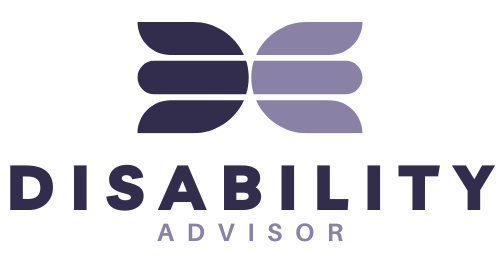The goal of Supplemental Security Income (SSI) is to support disabled people and their families who have low incomes and limited resources.
Children with certain disabilities, including autism, can qualify for SSI benefits from birth. For parents of autistic children, this money can help pay for important therapies and care to help their child reach their full potential.
To apply for SSI, there are two main steps:
- Proving financial need
- Providing medical evidence to show the extent of the disability
Let us talk about it in greater detail.
Financial Need for SSI for Autistic Children

The SSI program from the Social Security Administration helps people with disabilities who have limited financial resources.
Since it’s a needs-based program, your family’s income and assets must be below a specific level to qualify.
What Counts as Assets?
To meet SSI’s financial requirements, the first thing they look at is your total assets, also called “resources.”
These are items you could sell to cover basic needs like food and shelter.
- Your personal car
- Your home
For a child to qualify, the child’s countable assets must be $2,000 or less. For the parents, the limit is:
- $2,000 for a single parent
- $3,000 for two-parent households
If a parent’s resources are over the limit, the extra amount is sometimes added to the child’s total resources. Common countable assets include:
- Cash on hand
- Money in checking or savings accounts
What Counts as Income?

SSI compares your “countable income” with the benefit level. If your income is higher than the benefit level, no benefits will be given. If it’s lower, SSI will pay you the difference.
In 2024, the maximum SSI payment is:
- $$943 per month for an individual
- $1,415 for a couple
Some states offer additional payments on top of this. For a child, part of the parent’s income is “deemed” to be the child’s income.
Some types of income don’t count, including:
- Food stamps
- Foster care support
If you receive child support, only two-thirds of it is counted as income. The rest is excluded.
If you have other children in the household, that reduces the countable income. The complexity of your case will determine how much you will need to wait for the first payment, if approved, of course.
Income from Other Adults
In most cases, the Social Security Administration won’t count the income of other adults living with you unless you are married to them or they act like your spouse.
So, if you have roommates, family members, or friends living with you and you’re not married to them, their income won’t affect your benefits.
But, if you’re living in someone else’s home and they provide you with free food or a place to live, your benefits could be reduced.
Disability Determination for Autistic Children Under 18

Children with certain disabilities can qualify for Social Security disability benefits starting at birth.
Since autism is a spectrum disorder, a child’s eligibility for benefits depends on how severe their symptoms are.
The Social Security Administration (SSA) has different rules for determining disability in children compared to adults.
Children with significant autism-related limitations are more likely to qualify. The SSA considers a child under 18 to be “disabled” if they have a lasting physical or mental condition that seriously limits their ability to do everyday activities.
Medical Proof is Required
The SSA requires medical evidence to prove a disability. It means you need a doctor’s documentation of your child’s symptoms, as well as lab results or other tests.
A parent’s description of their child’s symptoms alone isn’t enough to qualify, but parents can still provide valuable information. You can explain the level of daily care and support your child needs.
Helpful Additional Information

It’s also helpful to include written statements from professionals who work with your child. These can be from doctors, teachers, or caregivers who can confirm the challenges your child faces. This extra information can strengthen your case for disability benefits.
The Social Security Administration has specific requirements for Autism Spectrum Disorder (ASD) that must be met to qualify for SSI for autistic children, between the ages of 3 and 18. Here’s what you need to know:
- Problems with verbal and nonverbal communication, and difficulty with social interaction.
- Very limited or repetitive behaviors, interests, or activities.
Your child must also have extreme limitations in one of these areas, or significant limitations in at least two:
- Understanding, remembering, or applying information.
- Interacting with others.
- Focusing, staying on task, or keeping up with activities.
- Managing themselves (such as controlling emotions or handling daily life tasks).
Your child’s condition will be assessed based on these guidelines, so you and your doctor should gather the necessary evidence to show how your child’s challenges affect their daily life.
Each case is evaluated individually, but if your child’s autism prevents them from doing typical activities for their age, they are likely to meet the criteria for disability.
State agencies will review your child’s case, which can take up to five months. If more information is needed, they may ask for an exam or tests, which will be covered.
If your child is approved for disability, monthly benefits will be calculated. If denied, you have the option to appeal the decision.







